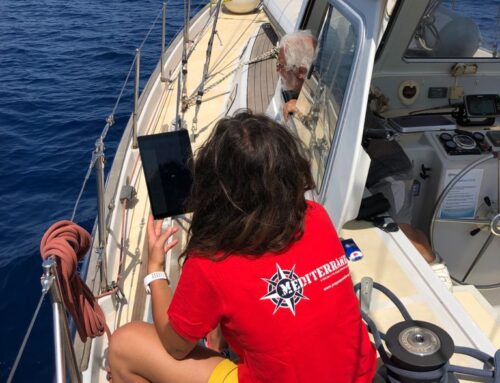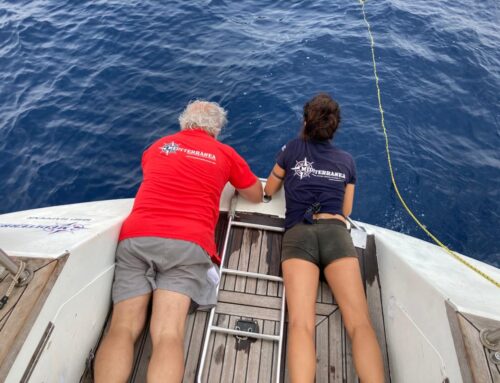(by Simone Perotti)
“Oil is subversive, like the mixing of races.” This is how Buket Uzuner, a much loved writer in Italy for her splendid “Ada d’ambra” (Sellerio), but also an environmental activist and author of an extensive bibliography of fiction and non-fiction, started yesterday at the Italian Cultural Institute of Istanbul. “It was pointed out to me that butter is also used in Turkey, and they did so to protest against my passion for mixtures everywhere as a source of richness, from the kitchen to society.” A good start.
And from 7 p.m. onwards, this set the place for the cultural soirée organized by Progetto Mediterranea and Maria Luisa Scolari and the Italian Institute of Culture of Istanbul, which was attended not only by Uzuner, but also by the inspired writer of Kurdish origin Burhan Sonmez, the combative political activist Oya Baydar and our Simone Perotti.
Sonmez started with a beautiful childhood story, of when he was a boy, and lived in a rural and mainland area of Anatolia, without electricity nor particular opportunities to learn and travel, and listened to the tales of his mother, and imagined the Black Sea, the Aegean, the Levantine Sea, and down there the fascinating Istanbul, which in his eyes was the capital of the world. “In my next novel, the main character is a man who fights, hopes, suffers and rejoices for a place he has never been to, but that belongs to him. In the same way I, who saw the sea for the first time at the age of fifteen, “have been feeling” the Mediterranean since I was born, because I dreamt about it, listened to it, imagined and lived it, as I would have done even if I had never seen it in the whole of my life. Feeling and dreaming are two Mediterranean actions“. After the conference, many approached him to offer their compliments.
Oya Baydar on the other hand, played the devil’s advocate, as it is always useful to have someone do in a public debate: “Where is the Mediterranean? We talk about oil, dreams, and at times, of simple stereotypes, but where is it? It is in very serious condition, it is a pile of rubble. We need to go against the tide, to repossess it “. Simone Perotti agrees with her: “Every time someone goes against the tide or breaks the rules, he or she is making a Mediterranean gesture. The history of this part of the world has been made by innovators, by courageous people who felt, hoped and then realized something new through the lens of the Mediterranean. Just like Bayezid II, the Great Ottoman Sultan, who when the Jews were expelled from Spain, in August 1492, sent his ships to save them, and then had them taken to Constantinople, where he gave them citizenship, freedom, and ordered that no one should harm even a hair on their heads. Or just like the Coast Guard, the Italian Navy, when they save migrants from the sea, but even more like the Sicilian fishermen and captains of commercial ships in transit. The whole world stands and watches, but they go against the tide, and do invaluable work. Or like the Greeks after 8 September 1943. Even though the Italians were the invaders, they hid and helped them, saving thousands of people from the murdering insanity of the Nazi“.
Love was there between the lines, as if it were a natural consequence of the understanding, of choices. Of communication. In a room where there was no love, Shahrazade used a ruse to allow a great deal of love to enter, says Simone Perotti, by going against the tide, saving her own life with stories, that she spun out for a thousand and one nights, until one of her jailers, the Persian prince who kept her locked away and who was to execute her at dawn, fell in love with her. “Did not Romeo and Juliet, victims of a family feud, Tristan and Isolde, victims of the barons and magic elixirs, and Helen and Paride, unable to flee and disappear, and consequently caused a tragic war, all succumb? Love, like people, can only be saved if one has the courage to be unorthodox, to lose everything to find oneself.”
The moderator Nermin Mollaoglu, owner of the largest Turkish literary agency (Kalem Agency, ndr), struggled to close the evening, which seemed to trigger a gush of words and quotes and suggestions. There will be time for the Mediterranea Project, which as from today, with the brilliant and energetic writer and journalist Ayfer Tuczu Unsal, has started a program of meetings and interviews.






Leave A Comment